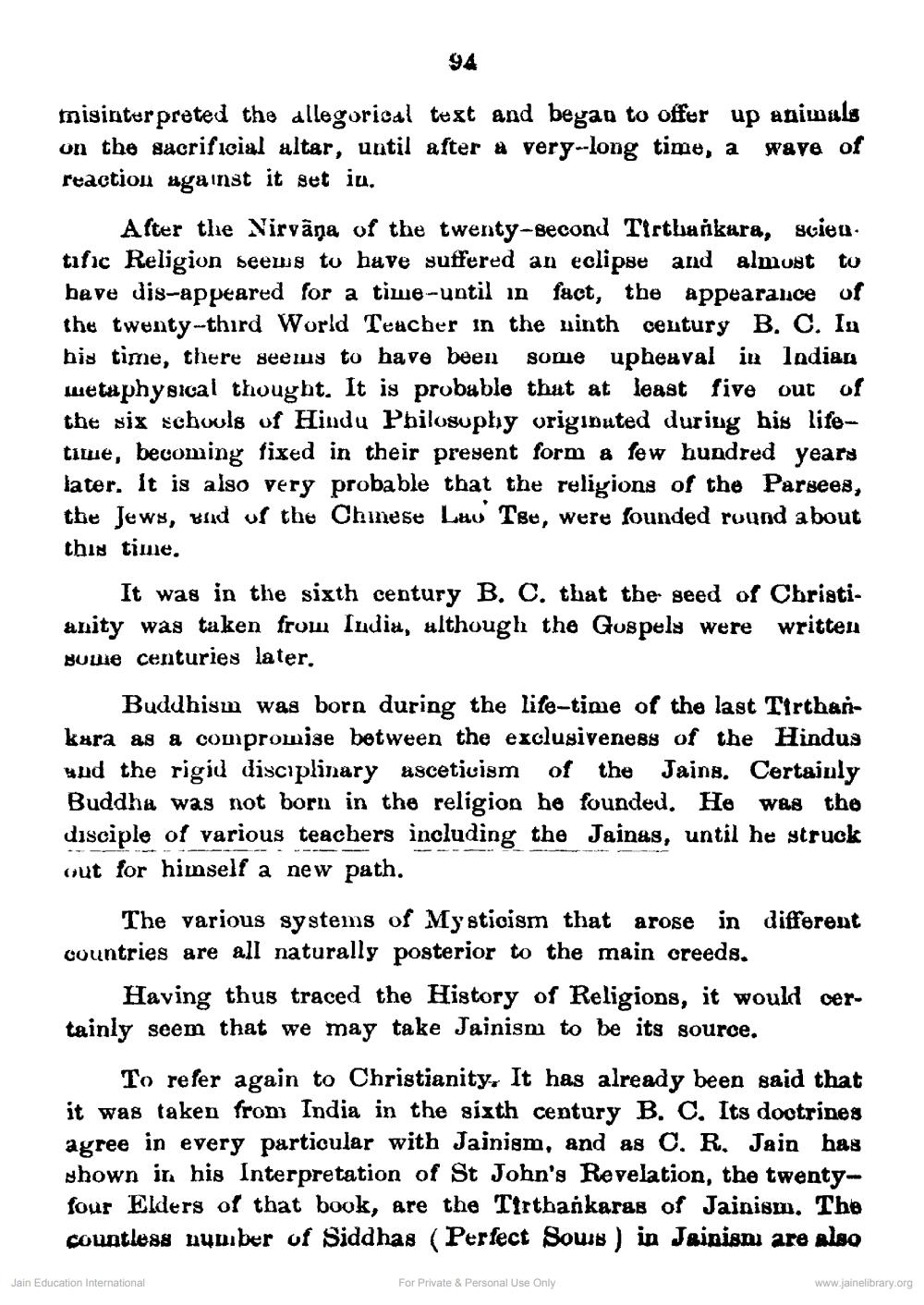________________
misinterpreted the allegorical test and began to offer up animals on the sacrificial altar, until after a very-long time, a wave of reaction against it set iu.
After the Virvāṇa of the twenty-second Tirthankara, scien. tific Religion seews to have suffered an eclipse and almost to bave dis-appeared for a time-until in fact, the appearance of the twenty-third World Teacher in the ninth century B. C. la bis time, there seems to have been some upheaval in Indian metaphysical thought. It is probable thut at least five out of the six schwls of Hindu Pbilosophy origibuted during his lifetime, becoming fixed in their present form & few hundred years later. It is also very probable that the religions of the Parsees, the Jews, and of the Chinese Law Tse, were founded round about this time,
It was in the sixth century B. C. that the seed of Christi. anity was taken from India, although the Gospels were written BUwe centuries later,
Buddhism was born during the life-time of the last Tirthankura as a compromise between the exclusiveness of the Hindus wud the rigid disciplinary asceticism of the Jains. Certainly Buddha was not born in the religion he founded. He was the disciple of various teachers including the Jainas, until he struck out for himself a new path.
The various systems of Mysticism that arose in different countries are all naturally posterior to the main creeds.
Having thus traced the History of Religions, it would oertainly seem that we may take Jainism to be its source.
To refer again to Christianity. It has already been said that it was taken from India in the sixth century B. C. Its doctrines agree in every particular with Jainism, and as C. R. Jain has shown in his Interpretation of St John's Revelation, the twentyfour Elders of that book, are the Tirtharkaras of Jainism. The countless number of Siddhas (Perfect Sous) in Jainisnı are also
Jain Education International
For Private & Personal Use Only
www.jainelibrary.org




